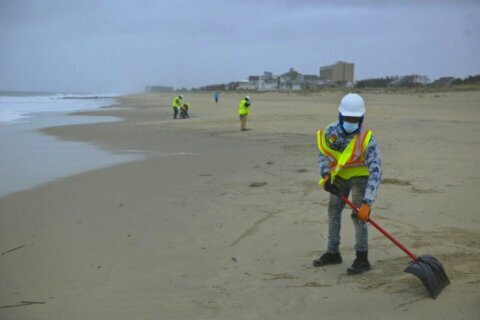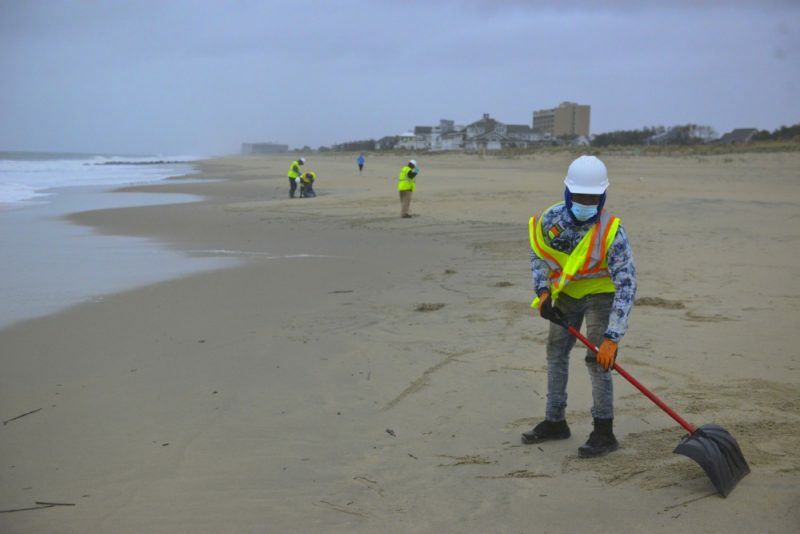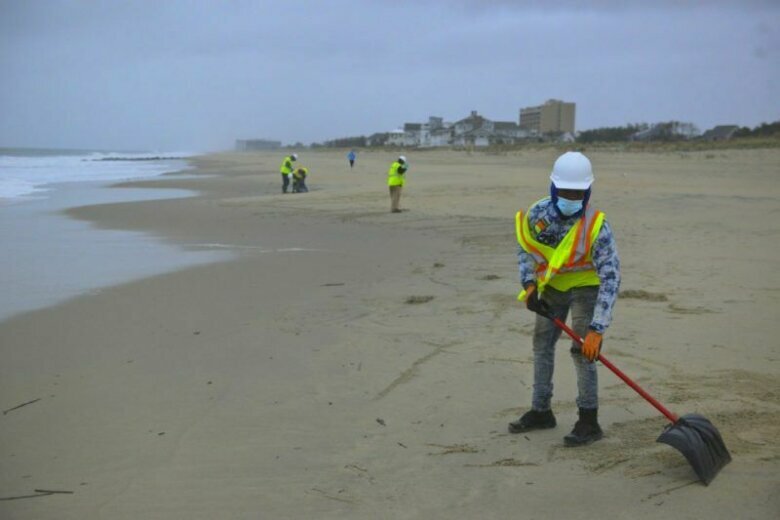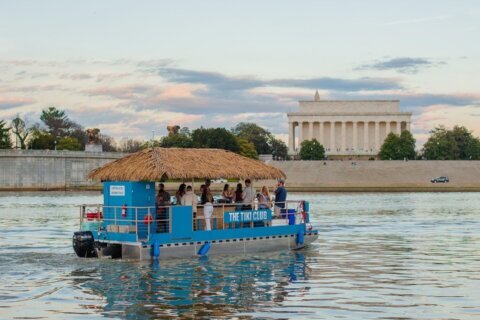

An oil cleanup continues along shorelines in Delaware and Maryland after a mysterious spill began covering sand, rocks and birds. The oil spill has even prompted the temporary closure of Dewey and Lewes beaches.
“What happens is, the tides have fragmented the oil, from larger pooling to smaller-size speckling on the beaches,” said Nikki Lavoie, chief of public affairs for Delaware’s Department of Natural Resources and Environmental Control.
The source of the spill, which began coming ashore Oct. 19 along Broadkill Beach, remains unknown.
The U.S. Coast Guard is helping in the cleanup and investigation. Samples of the oil are in a Coast Guard lab for testing.
“They do what’s called a ‘fingerprinting’ that might help determine its source,” Lavoie said.
Lewes and Dewey beaches have seen oil settling to a gravel-like substance known as tar balls. Since last week, crews have been combing the beach and shoveling out tar balls and oil-covered sand. “It’s a very labor-intensive process,” Lavoie said.
According to Lavoie, 55 tons of debris has been collected so far, and oil-covered debris has been found as far south as Ocean City, Maryland.
Most species of shorebirds and horseshoe crabs have departed the area for the season, according to Lavoie, but there have been reports of finding some oiled birds.
Lavoie said those animals don’t seem to be affected too much by the oil. Tri-State Bird Rescue, of Newark, Delaware, are ready to respond to help if needed, she said.
Anyone going to the beach should not touch the oil if they see it and instead should call the department at 1-800-662-8803.









